One of the most influential political figures of the 20th century, Mikhail S. Gorbachev used his more than six years as leader of the Soviet Union to introduce perestroika and glasnost.
|
On Sept. 12, 1985, The Times published an opinion piece written by Stephen F. Cohen, professor of politics at Princeton University, about Gorbachev’s first six months as general secretary of the Communist Party.
|
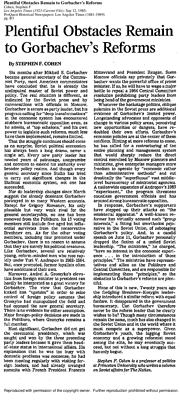
|
|
On Mar. 3, 1985, The Times reported that hours after the announcement of President Konstantin U. Chernenko’s death, his youngest lieutenant, Mikhail S. Gorbachev, took power in a lightning shift away from the aged elite that has rule the huge, secretive Soviet state for two decades.
|
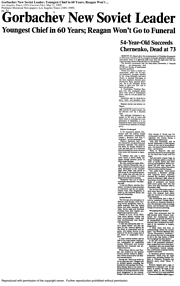
|
|
On Dec. 16, 1984, The Times reported that upon his arrival at London’s Heathrow Airport, Mikhail S. Gorbachev said “There are no types of armaments that the Soviet Union would not agree to see limited and eventually banned in agreement with other states on a reciprocal basis.”
|
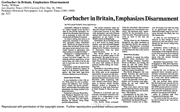
|
|
On Feb. 14, 1984, The Times reported that Konstantin U. Chernenko, 72, was chosen as the new leader of the Soviet Union.
|
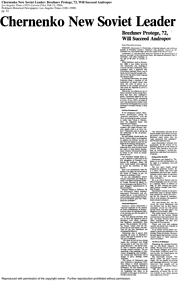
|
|
On Feb. 10, 1984, The Times reported that Soviet leader Yuri V. Andropov, 69, who had ruled the Soviet Union in ill health for only 15 months was dead.
|

|
|
On Nov. 12, 1982, The Times reported that former KGB chief Yuri V. Andropov was unanimously elected to succeed Leonid I. Brezhnev as Communist Party leader.
|
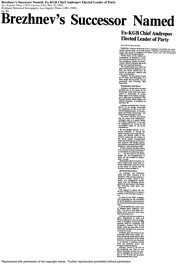
|